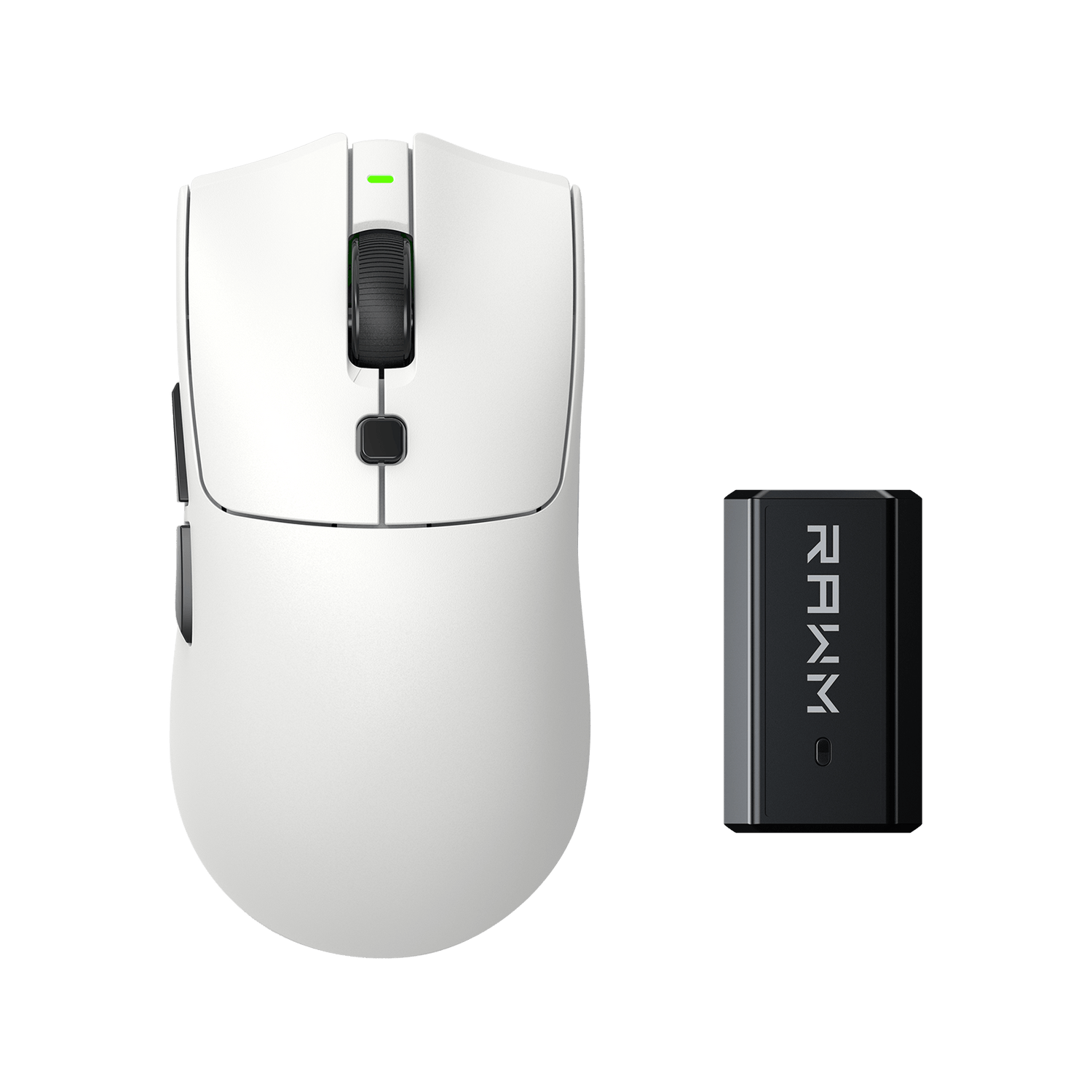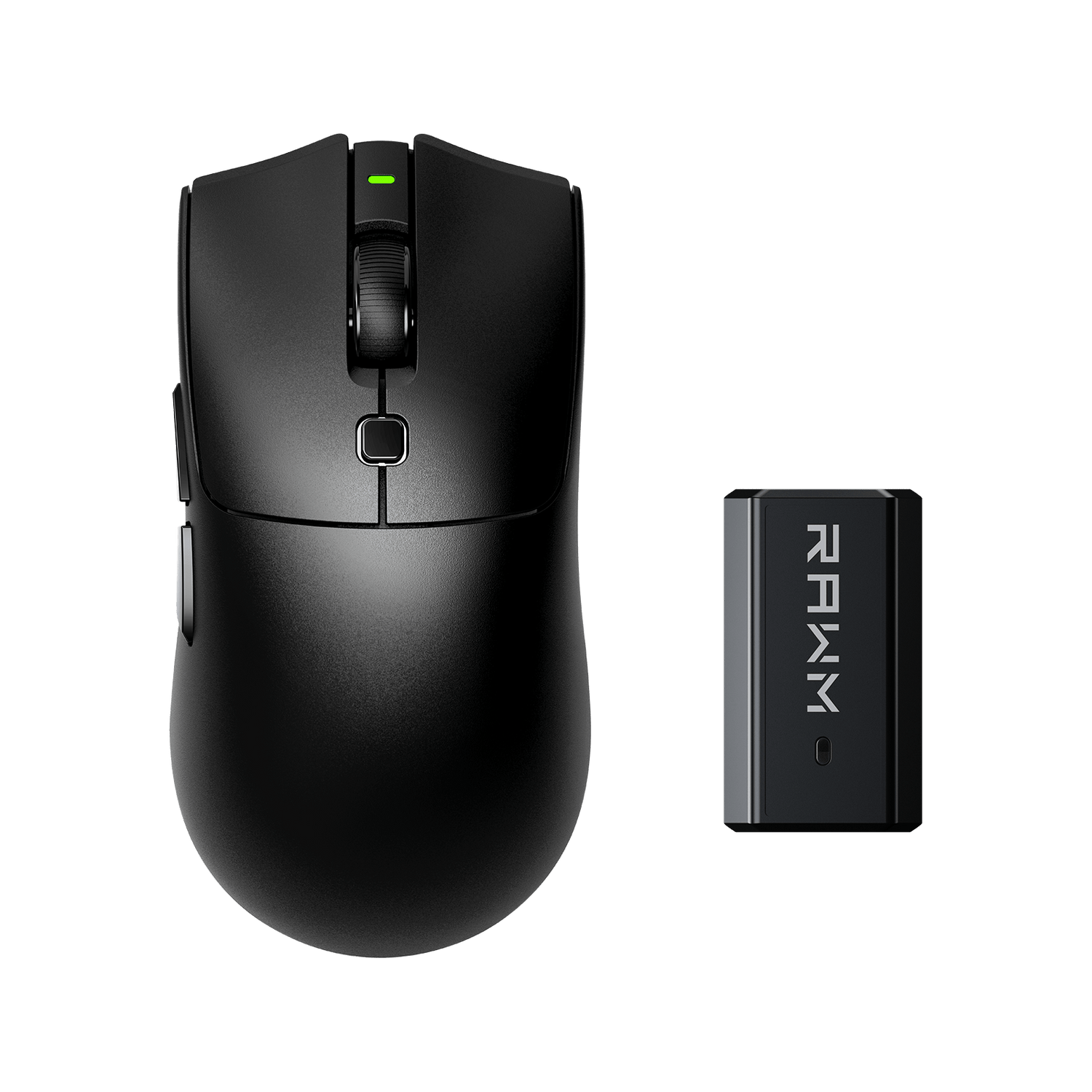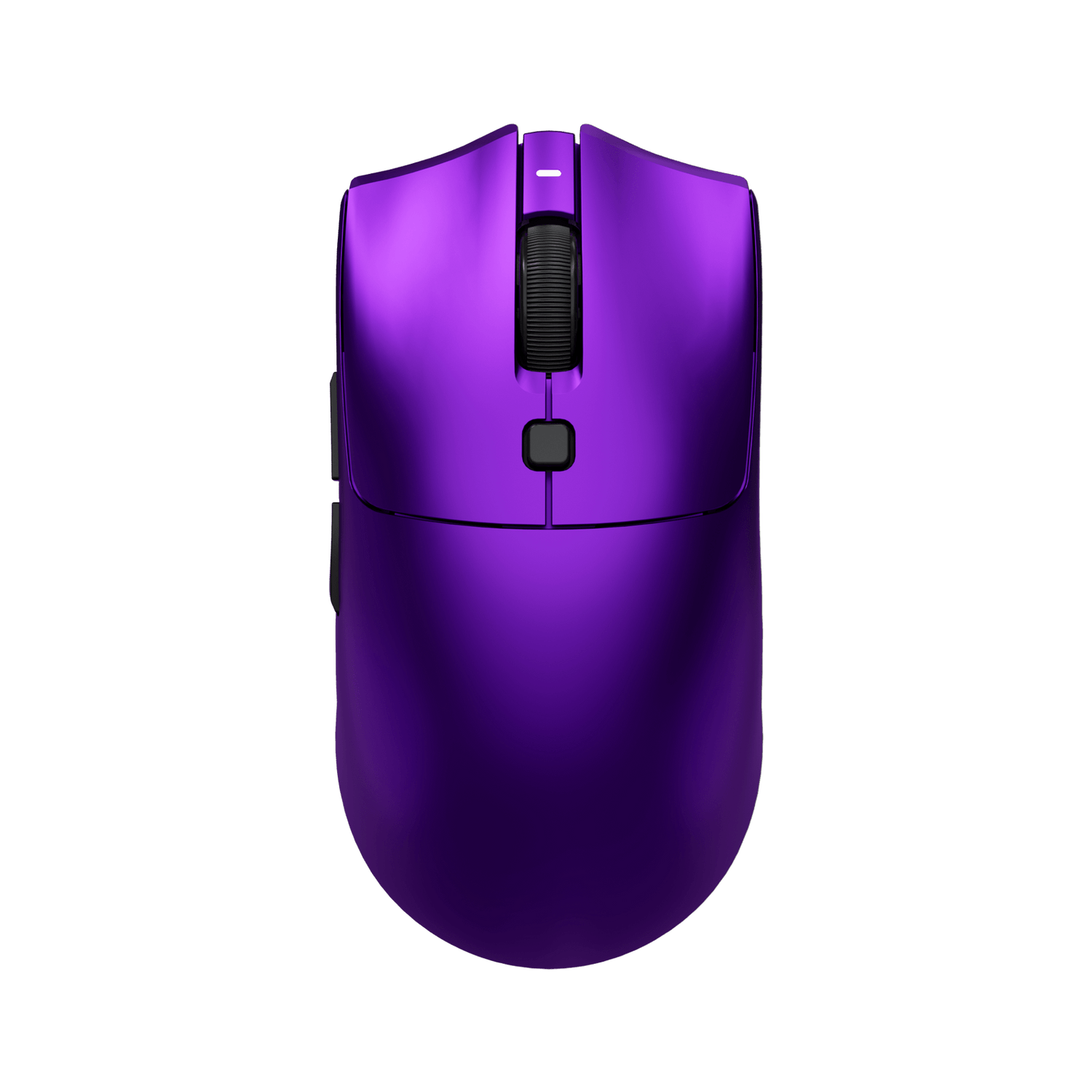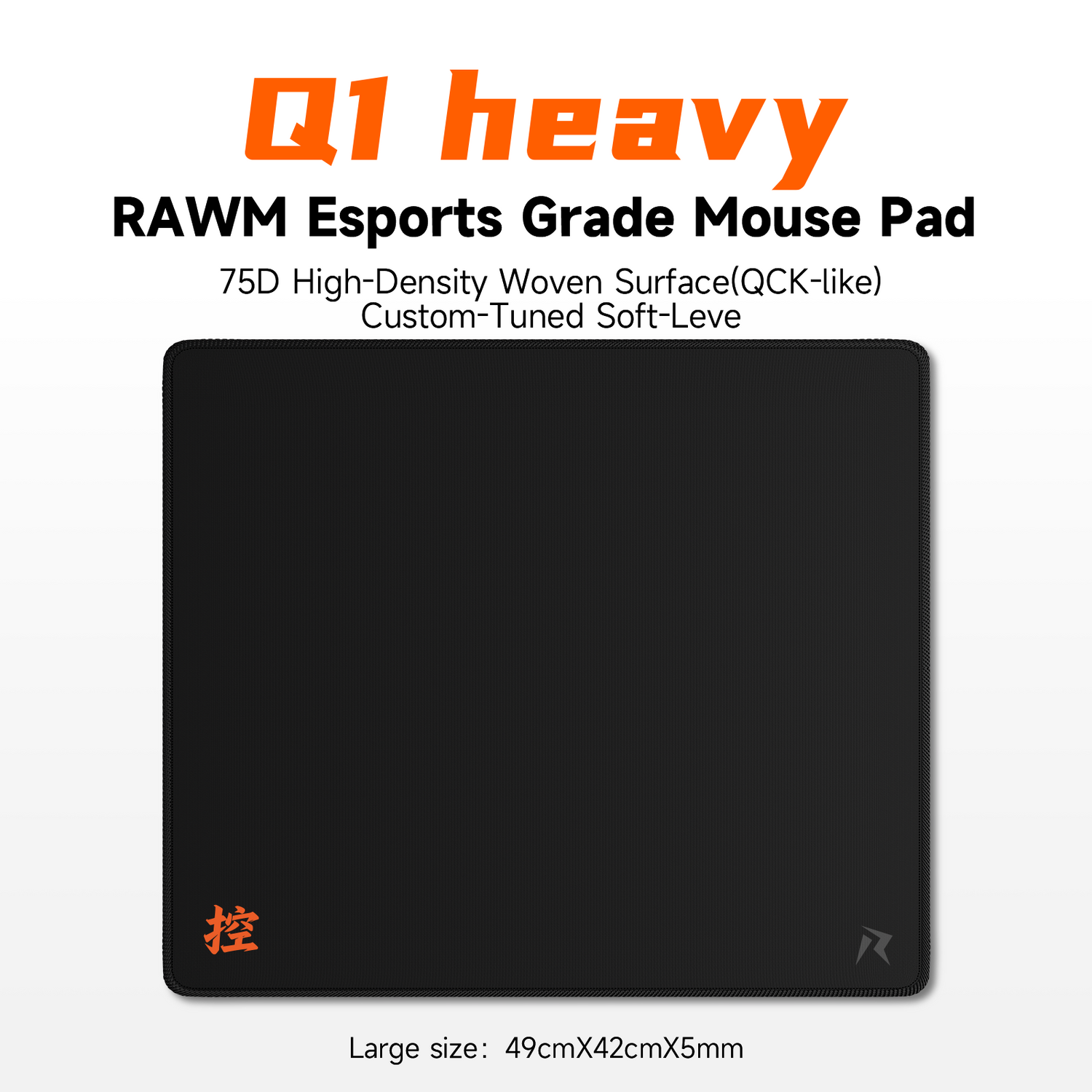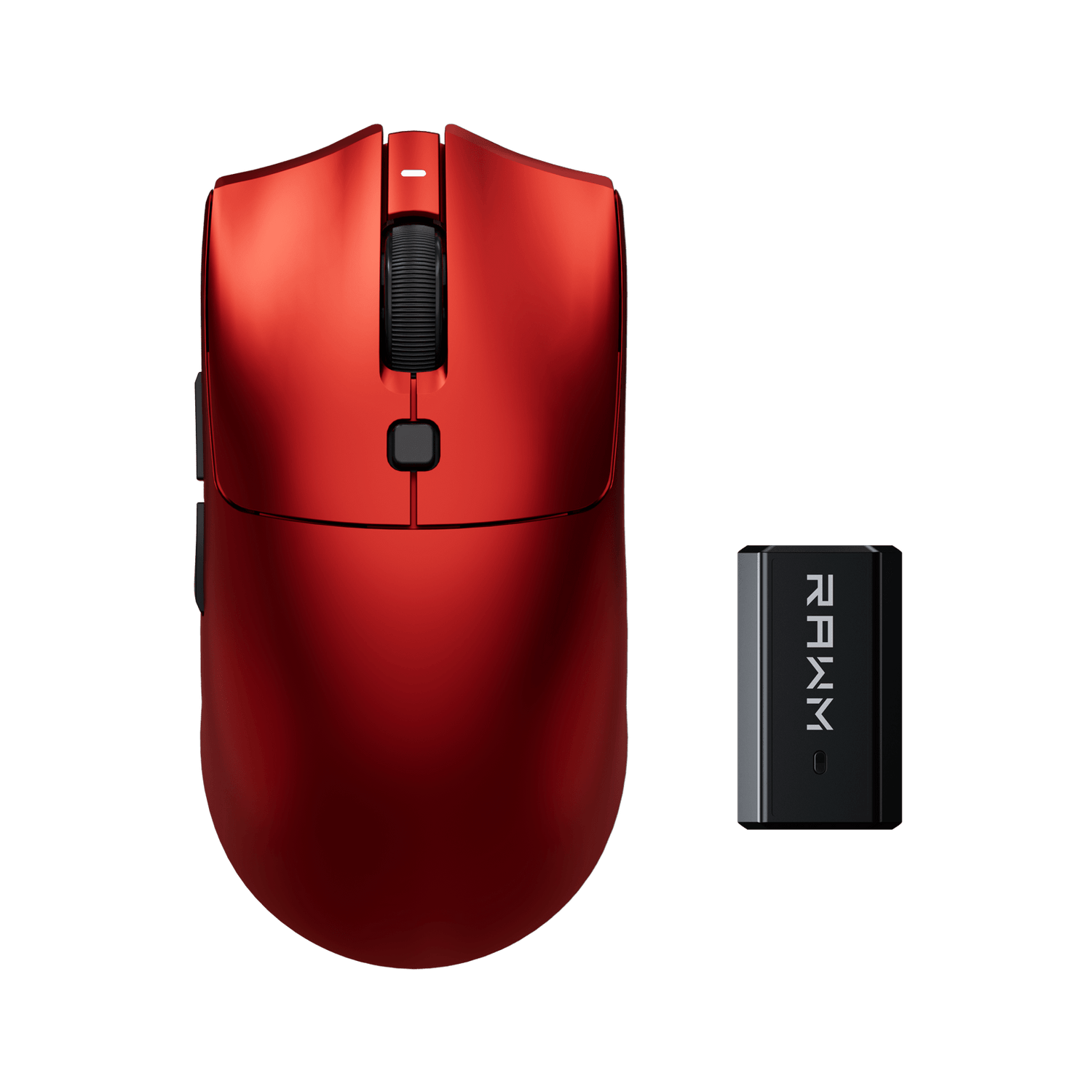
Choisir entre une souris Bluetooth et une souris sans fil pour le jeu
- 1. Que signifie réellement la différence entre une souris Bluetooth et une souris sans fil pour les jeux vidéo ?
- 2. Latence et réactivité des souris Bluetooth et sans fil pour les jeux
- 3. Connectivité et praticité des souris Bluetooth et sans fil pour le jeu
- 4. Autonomie et efficacité énergétique des souris Bluetooth par rapport aux souris sans fil pour le jeu
- 5. Portée et portabilité des souris Bluetooth par rapport aux souris sans fil pour le jeu
- 6. Compatibilité et prise en charge des périphériques : souris Bluetooth vs souris sans fil pour le jeu
- 7. Comparaison des prix et des caractéristiques des souris Bluetooth et sans fil pour le jeu
- 8. Souris hybrides (Bluetooth + sans fil) : comparaison entre les souris Bluetooth et les souris sans fil pour les jeux vidéo
- 9. Cas d'utilisation : souris Bluetooth vs souris sans fil pour le jeu
- 10. Recommandation pour les utilisateurs de souris de jeu : Bluetooth ou sans fil ?
Comprendre les différences entre une souris Bluetooth et une souris sans fil est essentiel pour le jeu, que vous soyez un joueur occasionnel ou un compétiteur de haut niveau. Ce guide analyse la latence, la connectivité, l'autonomie et la portabilité pour vous aider à choisir le périphérique le plus adapté. Par exemple, les souris Bluetooth offrent un confort d'utilisation au bureau et pour les jeux occasionnels, tandis que les souris sans fil 2,4 GHz sont idéales pour une expérience de jeu réactive et sans latence. À la fin de ce guide, vous saurez précisément quelle option convient à votre configuration, grâce à une analyse détaillée des performances et de l'ergonomie des souris Bluetooth et sans fil pour le jeu .
1. Que signifie réellement la différence entre une souris Bluetooth et une souris sans fil pour les jeux vidéo ?
Ces termes sont souvent utilisés indifféremment, mais ils diffèrent considérablement :
-
La souris Bluetooth se connecte via le récepteur Bluetooth intégré de votre appareil.
-
Une souris sans fil utilise généralement un dongle USB dédié de 2,4 GHz.
Dans le contexte de la comparaison entre souris Bluetooth et souris sans fil pour le jeu , cette distinction influe sur la latence, la facilité d'utilisation et la compatibilité – des considérations essentielles pour les joueurs recherchant des performances optimales.
2. Latence et réactivité des souris Bluetooth et sans fil pour les jeux
Lorsqu'on compare une souris Bluetooth à une souris sans fil pour le jeu , la latence est un facteur crucial :
-
Les souris sans fil 2,4 GHz offrent des taux d'interrogation allant jusqu'à 1000 Hz et une latence aussi faible que 1 à 2 ms.
-
Les souris Bluetooth prennent généralement en charge une fréquence d'interrogation allant jusqu'à 133 Hz avec une latence plus élevée.
Pour les genres rapides comme les FPS ou les MOBA, le 2,4 GHz est clairement le meilleur choix pour les joueurs soucieux de la vitesse et de la précision des entrées.
3. Connectivité et praticité des souris Bluetooth et sans fil pour le jeu
Le débat ne porte pas uniquement sur la vitesse ; la facilité de connexion compte aussi :
-
Les souris Bluetooth sont faciles à appairer, ne nécessitent aucun dongle et sont compatibles avec les ordinateurs portables et les appareils mobiles.
-
Les souris sans fil nécessitent un dongle USB, qui peut occuper un port mais offre une simplicité d'utilisation immédiate et une stabilité accrue.
Voici une comparaison rapide :
| Fonctionnalité | Souris Bluetooth | Souris sans fil 2,4 GHz |
|---|---|---|
| Installation | Associer l'appareil via le système d'exploitation | Branchez la clé USB ; connexion automatique |
| Utilisation du port USB | Aucun | Utilise 1 port |
| Risque d'interférence | Plus élevées (bandes Bluetooth encombrées) | Inférieur (RF dédié) |
| Prise en charge multi-appareils | Excellent | Limité à un seul appareil |
Ce tableau met en évidence les compromis entre une souris Bluetooth et une souris sans fil en termes de polyvalence de jeu .
4. Autonomie et efficacité énergétique des souris Bluetooth par rapport aux souris sans fil pour le jeu
La gestion de la batterie est un autre facteur vital :
-
Le Bluetooth offre souvent une autonomie plus longue, idéale pour une utilisation de bureau à faible consommation.
-
Les souris sans fil 2,4 GHz peuvent consommer légèrement plus d'énergie, mais elles sont généralement fournies avec des piles rechargeables ou fonctionnent avec des piles AA.
Si vous recherchez un équilibre entre performances de jeu et portabilité, tenez compte de votre consommation d'énergie : le choix entre une souris Bluetooth et une souris sans fil pour le jeu dépend de la fréquence et de la durée d'utilisation.
5. Portée et portabilité des souris Bluetooth par rapport aux souris sans fil pour le jeu
Lequel convient le mieux à votre environnement ?
-
Les souris sans fil (2,4 GHz) offrent une portée fiable d'environ 10 à 15 m
-
Le Bluetooth a une portée jusqu'à 10 m et se connecte aux tablettes et aux téléphones — portable mais légèrement plus sujet aux décalages.
Pour jouer confortablement installé sur son canapé ou en voyage, le choix entre une souris Bluetooth et une souris sans fil peut être déterminant pour la portabilité du jeu .
6. Compatibilité et prise en charge des périphériques : souris Bluetooth vs souris sans fil pour le jeu
La compatibilité des appareils est essentielle :
-
Les souris Bluetooth se connectent à la plupart des ordinateurs portables, tablettes et smartphones : une solution multi-appareils transparente.
-
Les souris sans fil nécessitent un port USB, ce qui est souvent idéal pour les configurations d'ordinateurs de bureau.
Si votre configuration est variée, le choix entre une souris Bluetooth et une souris sans fil pour la compatibilité de jeu importe plus que les performances brutes.
7. Comparaison des prix et des caractéristiques des souris Bluetooth et sans fil pour le jeu
Le prix et les fonctionnalités diffèrent :
-
Les souris Bluetooth peuvent être moins chères, mais elles peuvent manquer d'optimisations pour les jeux.
-
Les souris gaming sans fil incluent un DPI personnalisable, des taux d'interrogation élevés et un éclairage RGB
Les souris gaming sans fil haut de gamme comme la Razer DeathAdder ou la Logitech G502 allient performance et personnalisation, un point clé pour les joueurs qui choisissent entre une souris Bluetooth et une souris sans fil pour le jeu .
8. Souris hybrides (Bluetooth + sans fil) : comparaison entre les souris Bluetooth et sans fil pour les jeux vidéo
Certaines souris offrent une connectivité à double mode :
-
Exemples : Redragon M916, GravaStar Mercury M1 Pro
-
Proposez le Bluetooth pour une utilisation occasionnelle et la bande 2,4 GHz pour les jeux.
Les appareils hybrides combinent souris Bluetooth et souris sans fil pour optimiser les performances de jeu , et sont idéaux pour une utilisation flexible.
9. Scénarios d'utilisation : souris Bluetooth vs souris sans fil pour le jeu
Choisissez en fonction de votre style de jeu :
-
FPS/MOBA compétitifs → Sans fil 2,4 GHz pour une faible latence et une grande précision.
-
Usage occasionnel/portable → Bluetooth pour plus de commodité sans encombrement de ports.
-
Appareils mixtes → Mode hybride pour basculer facilement entre les appareils.
Laissez vos habitudes de jeu personnelles guider votre choix entre une souris Bluetooth et une souris sans fil pour le jeu .
10. Recommandation pour les utilisateurs de souris de jeu : Bluetooth ou sans fil ?
Pour résumer:
-
Optez pour une connexion sans fil 2,4 GHz si vous êtes un joueur à la recherche de performances et de réactivité.
-
Choisissez le Bluetooth si vous privilégiez la portabilité, l'utilisation multi-appareils et l'autonomie de la batterie.
-
Optez pour des souris hybrides afin de combiner les deux fonctionnalités en un seul appareil.
En définitive, comprendre les compromis entre souris Bluetooth et souris sans fil pour le jeu vous aide à prendre une décision éclairée et personnalisée.
Quelles sont les caractéristiques les plus importantes pour vous dans le débat entre une souris Bluetooth et une souris sans fil pour le jeu ? Faible latence, polyvalence ou autonomie ? Partagez vos expériences et préférences ci-dessous !
>>Voir aussi le guide gratuit d'entraînement à la précision de la souris gaming pour une meilleure visée >>>>>







